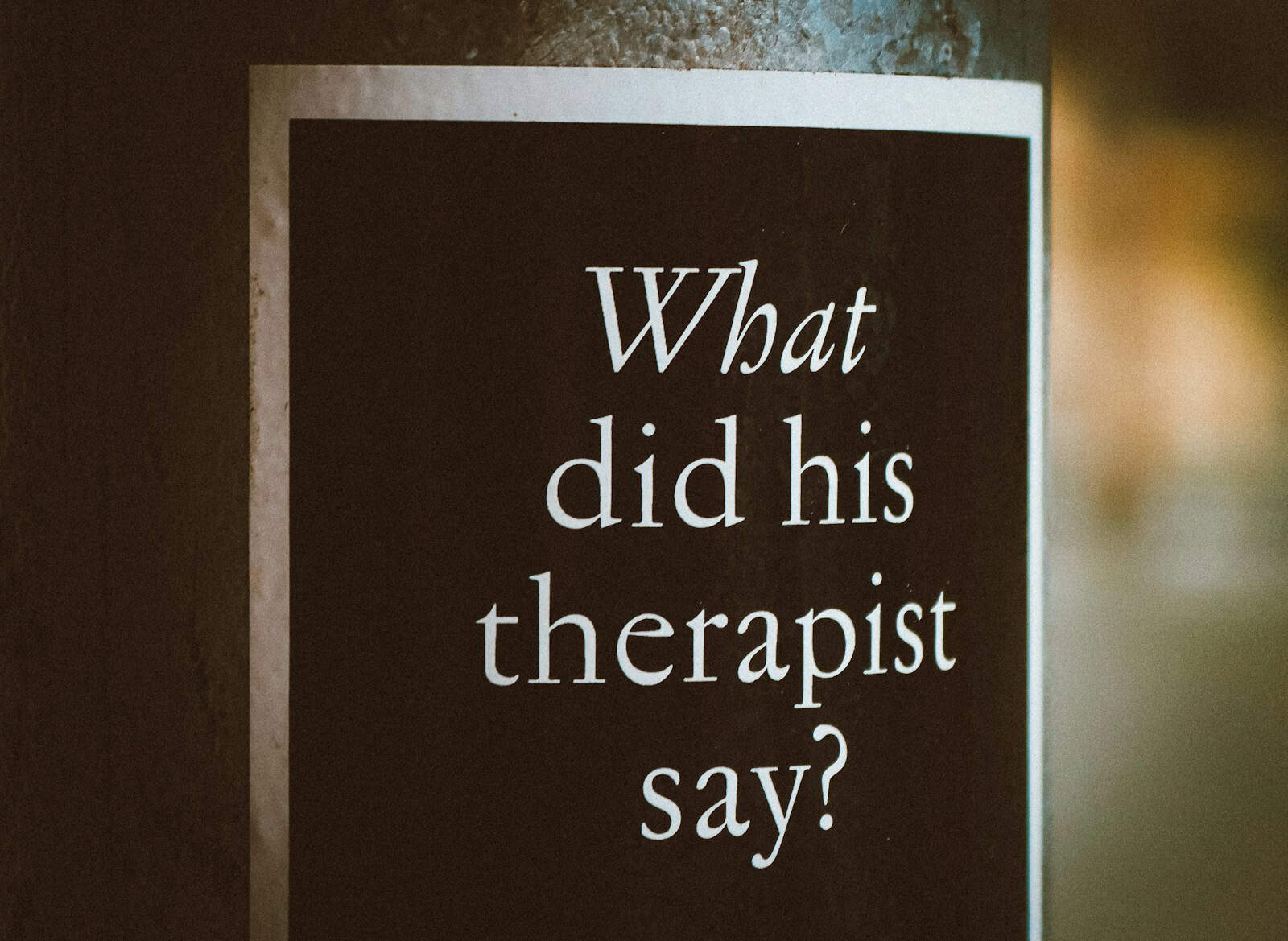How to Find a Therapist for Toxic Behavior
My friend Sarah called a therapist last year and said something that felt impossible to admit. “I think my toxic behavior is ruining my relationships.”
The therapist paused for a long moment. Then she said something that surprised Sarah completely: “Most people with harmful patterns never say that out loud.”
That phone call changed everything for Sarah. Not because the therapist had special powers, but because she specialized in helping people whose actions hurt others consistently.
Finding the right therapist for toxic behavior isn’t like finding help for depression or anxiety. You need someone trained to work with people who might lie, manipulate, or try to control the therapy process itself.
Most therapists aren’t equipped to handle these patterns effectively. But the ones who are can guide you toward real, lasting change that repairs relationships.
Why Finding the Right Therapist for Toxic Behavior Is Different
 When your actions hurt people, regular therapy approaches often don’t work at all. Many therapists use methods designed for people who are primarily hurting themselves, not others around them.
When your actions hurt people, regular therapy approaches often don’t work at all. Many therapists use methods designed for people who are primarily hurting themselves, not others around them.
You need someone who won’t get charmed, manipulated, or overwhelmed by your stories. Someone who can stay completely objective while still being genuinely helpful and supportive.
This is much harder than it sounds initially. If you’re used to getting your way through charm or emotional manipulation, you might unconsciously try the same tactics with your therapist.
The wrong therapist will either enable these harmful patterns or get frustrated and give up on you. The right one recognizes what’s happening and redirects the conversation back to your actions.
Another major challenge is that destructive patterns often involve denial and blame-shifting toward others. You might minimize what you’ve done or blame others for triggering your reactions every time.
Traditional talk therapy relies heavily on honest self-reporting about your actions. If you’re not ready to be completely truthful about your behavior, progress becomes impossible to achieve.
The best therapists for these issues are specifically trained to work through these challenges. They expect some resistance and have proven tools for handling it professionally.
What Makes Therapy for Toxic Behavior Actually Work
 Effective therapy for destructive patterns focuses on changing specific actions, not just understanding your feelings better. You need tools for managing emotions differently when triggered.
Effective therapy for destructive patterns focuses on changing specific actions, not just understanding your feelings better. You need tools for managing emotions differently when triggered.
The approaches that work best include Dialectical Behavior Therapy (DBT), Cognitive Behavioral Therapy (CBT), and trauma-informed therapy methods. These provide structure and specific skills for change.
DBT teaches emotional regulation, distress tolerance, and interpersonal skills that reduce harmful actions. CBT helps identify and change thinking patterns that lead to destructive choices toward others.
Your therapist should track behavioral changes, not just emotional insights about your past. Are you having fewer explosive arguments? Are you listening better to others? Are people feeling safer around you?
Good therapy for these patterns includes homework and practice between sessions. Real change happens in your daily life, not just during weekly appointments with your therapist.
The therapist should also be willing to challenge your actions directly. This might feel uncomfortable if you’re used to people walking on eggshells around you constantly.
This direct approach is absolutely necessary for lasting change. Someone who’s afraid to confront your patterns can’t help you change them effectively.
Group therapy often works especially well for behavioral issues. It’s much harder to manipulate an entire group than one individual person.
5 Types of Specialists Who Can Actually Help with Toxic Behavior
Not all therapists are trained to handle harmful patterns effectively. Here are the specialists most likely to create real change in your actions.
1. DBT Therapists Specializing in Toxic Behavior
 These therapists specialize in Dialectical Behavior Therapy approaches. Originally designed for people with intense emotions and self-destructive behaviors, DBT works well for anyone whose actions hurt others.
These therapists specialize in Dialectical Behavior Therapy approaches. Originally designed for people with intense emotions and self-destructive behaviors, DBT works well for anyone whose actions hurt others.
What they do: Teach specific skills for managing emotions, handling conflict, and building healthier relationships. Focus on changing behaviors rather than just talking about childhood problems.
Best for: People with anger issues, emotional volatility, or relationship problems. Also good for anyone who feels emotions very intensely and reacts through harmful actions.
2. Trauma-Informed Therapists Who Address Toxic Behavior
Many destructive patterns stem from past trauma or difficult childhood experiences. These therapists understand how trauma affects behavior while still holding you accountable for your actions.
What they do: Address underlying trauma while working on current harmful patterns. Help you understand why certain behaviors developed without excusing them or making you the victim.
Best for: People whose destructive actions started after difficult experiences, like abuse, neglect, or major loss that influenced their patterns.
3. Cognitive Behavioral Therapists (CBT) for Toxic Behavior
CBT therapists focus on the connection between thoughts, feelings, and actions. They help identify thinking patterns that lead to harmful choices toward others.
What they do: Teach you to recognize and change thought patterns that trigger destructive actions. Provide practical tools for making different choices in difficult situations with others.
Best for: People who want practical, structured approaches to change. Anyone whose harmful patterns are driven by specific thinking patterns or deeply held beliefs.
4. Anger Management Specialists
These therapists specifically work with people who have trouble controlling their anger or who use anger to control and manipulate others through harmful actions.
What they do: Teach healthy ways to express and manage anger without hurting others. Help you understand what triggers your destructive patterns and develop better responses.
Best for: People with explosive anger, those who yell or intimidate others, anyone whose harmful behavior mainly involves anger and aggression toward others.
5. Relationship Therapists with Behavioral Training
Some couples or family therapists are trained to work with one partner who displays destructive patterns. They understand power dynamics and control issues in relationships.
What they do: Help repair damage from past harmful actions while teaching better relationship skills. Sometimes work with partners or family members affected by your behavior.
Best for: People whose destructive patterns mainly show up in romantic relationships.
Red Flags: Therapists to Avoid When Toxic Behavior
 Some therapists will make your destructive patterns worse, not better. Here are warning signs to watch for during consultations.
Some therapists will make your destructive patterns worse, not better. Here are warning signs to watch for during consultations.
They constantly agree with you or never challenge your perspective about situations. Good therapists for behavioral issues maintain professional skepticism while showing genuine support.
They seem shocked or overwhelmed by your stories about your actions. If a therapist appears emotionally reactive to your behavior, they probably lack experience with these issues.
They focus only on your feelings and ignore your actions toward others. While emotions matter, therapy for destructive patterns must address what you actually do to people.
They excuse your harmful actions because of your past experiences. Trauma explains behavior but doesn’t excuse hurting others. Good therapists address both aspects without making excuses.
They don’t set clear boundaries during sessions. Specialists in behavioral issues maintain firm professional boundaries because they understand manipulation tactics and control attempts.
They promise quick fixes or seem overly optimistic about change. Changing deep destructive patterns takes significant time and consistent hard work over months.
They avoid difficult conversations about your impact on others. If a therapist seems uncomfortable with conflict, they can’t help you learn to handle it without harmful actions.
Questions to Ask Before Choosing a Therapist for Toxic Behavior
Don’t just pick the first available therapist in your area. Ask these specific questions to find someone who can actually help with destructive patterns.
“What’s your experience working with people whose actions have hurt others?” This shows whether they understand the unique challenges of working with these patterns.
“How do you handle clients who might not be completely honest about their behavior?” Good specialists expect some deception and have strategies for working through denial.
“What therapeutic approaches do you use for changing harmful patterns?” Look for mentions of DBT, CBT, or other evidence-based methods rather than just general “talk therapy” approaches.
“How do you measure progress when treating destructive behavior?” The answer should include behavioral changes toward others, not just feeling better or gaining insight about yourself.
“Do you work with family members affected by harmful actions?” Many specialists understand that healing relationships requires addressing the impact your behavior had on others.
“What happens if I resist change or keep repeating destructive patterns?” They should have realistic plans for when clients get stuck or avoid doing the difficult work.
“How long does therapy for behavioral issues typically take?” While everyone’s different, they should have realistic timelines based on their experience with similar patterns.
Don’t be embarrassed to ask these questions about your patterns. This is your mental health and your relationships at stake. The right therapist will appreciate your preparation.
What to Expect from Effective Therapy for Toxic Behavior
When you find the right therapist, the work feels different from regular therapy. Here’s what good therapy for destructive patterns actually looks like.
Direct Feedback About Your Toxic Behavior
They’ll point out manipulation, blame-shifting, or minimizing as it happens during sessions. This might feel confrontational but it’s absolutely necessary for change.
Focus on Actions, Not Just Feelings
While emotions matter, sessions focus on changing specific harmful actions and their impact on others. You’ll spend more time discussing what you did than how you felt.
Homework Between Sessions
Real change happens outside therapy sessions. Expect exercises, journaling assignments, or practice activities focused on reducing harmful patterns in daily life.
Tracking Behavioral Changes Over Time
Progress gets measured by what you do differently, not just how you feel. Are you having fewer arguments? Are you controlling others less? Are people safer around you?
Learning Emotional Regulation Skills
You’ll get concrete tools for managing anger, frustration, and disappointment without expressing these emotions through destructive actions.
Practicing New Responses to Triggers
You’ll rehearse different ways to handle situations that typically trigger your most harmful patterns with family, friends, or coworkers.
Instead of exploring your childhood for months, good specialists focus on changing your current destructive patterns that hurt people today.
Don’t expect constant validation or sympathy about your struggles. The right therapist cares enough to challenge your actions rather than enable them.
But when you work with someone who holds you accountable while supporting your growth, real change becomes possible. Relationships start healing gradually.
How to Prepare for Your First Therapy Session About Toxic Behavior
 Going to therapy for harmful behavior requires different preparation than other types of counseling. Here’s how to get ready for success.
Going to therapy for harmful behavior requires different preparation than other types of counseling. Here’s how to get ready for success.
Be honest about specific examples of harmful actions. Make a list of things you’ve done that hurt others.
Identify your triggers for destructive patterns. When do your worst behaviors happen? What emotions or situations set off your most harmful actions toward others?
Think about your goals for changing these patterns. What relationships do you want to repair? What specific behaviors do you most want to change?
Prepare for discomfort during sessions. Good therapy for destructive patterns involves facing uncomfortable truths about your impact on others over time.
Consider involving others affected by your actions. Think about whether partners or family members might provide helpful perspectives on your patterns.
Set realistic expectations for changing harmful behavior. Change takes months of consistent effort. Don’t expect immediate transformation of deeply ingrained patterns.
Bring examples, not excuses for your actions. Come with specific instances of problematic behavior rather than explanations for why they happened.
Remember that admitting you need help for destructive patterns takes real courage. Most people who hurt others through their actions never take this step.
The fact that you’re even considering therapy shows self-awareness that many people completely lack. But awareness alone isn’t enough to change harmful patterns. You need to be ready to do uncomfortable work.
What Changes When You Get the Right Help for Harmful Patterns
When you find effective therapy for destructive behavior, the changes show up in your relationships first. People start feeling genuinely safer around you.
You develop much better emotional regulation skills over time. Instead of exploding or shutting down, you learn to handle difficult feelings without expressing them through harmful actions.
Your thinking becomes clearer about your impact on others. You start recognizing manipulation, blame-shifting, and other mental habits that drive destructive patterns.
Most importantly, you learn to take responsibility without falling apart emotionally. You can admit mistakes and make amends without feeling like a terrible person.
This builds genuine self-respect over time. Not the fake confidence that comes from controlling others through harmful actions, but real self-worth based on how you treat people.
Your relationships improve because people can trust you to handle conflicts without becoming destructive.
The work is difficult and sometimes emotionally painful. But the relief of not being controlled by your worst impulses toward others is worth every uncomfortable session.






